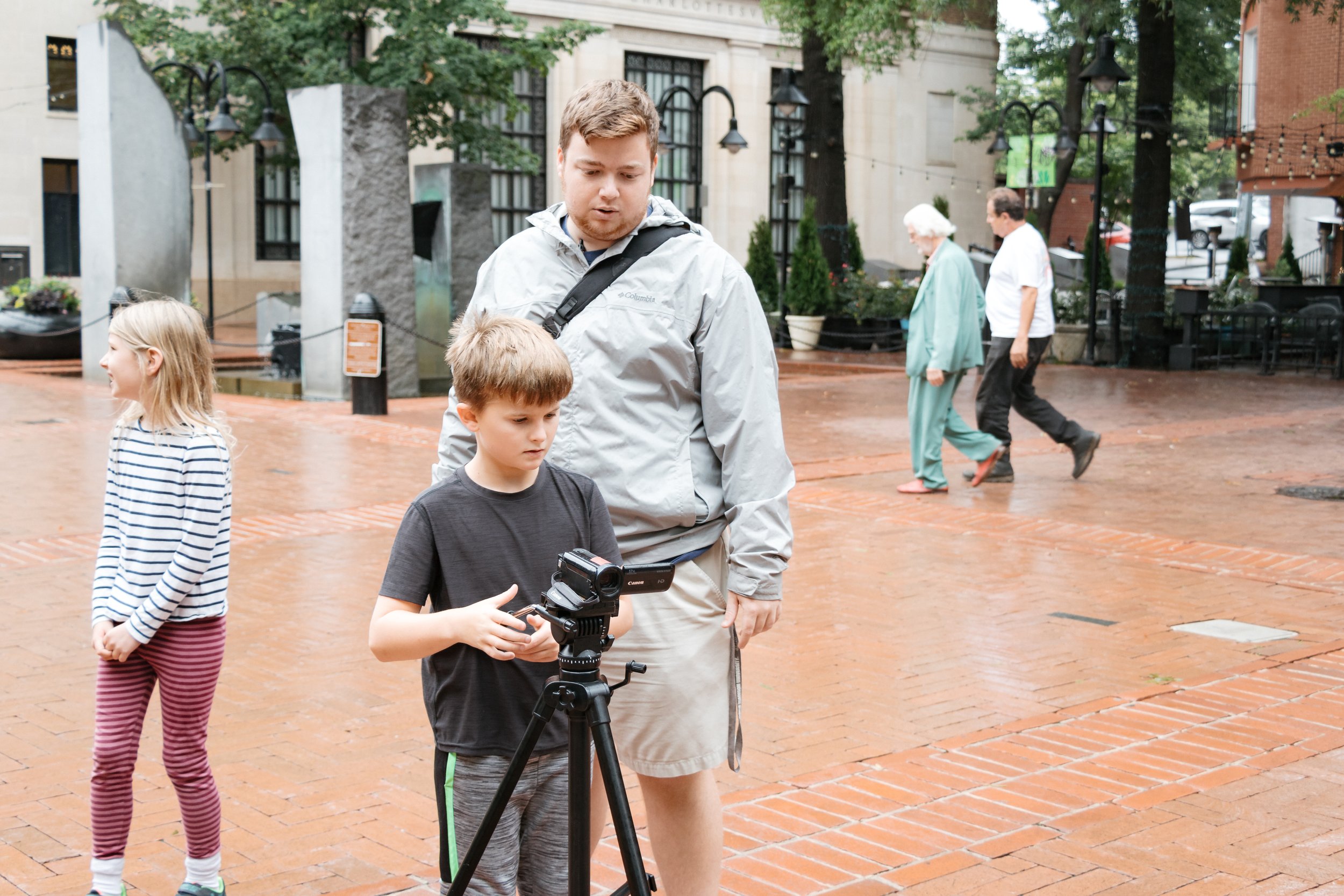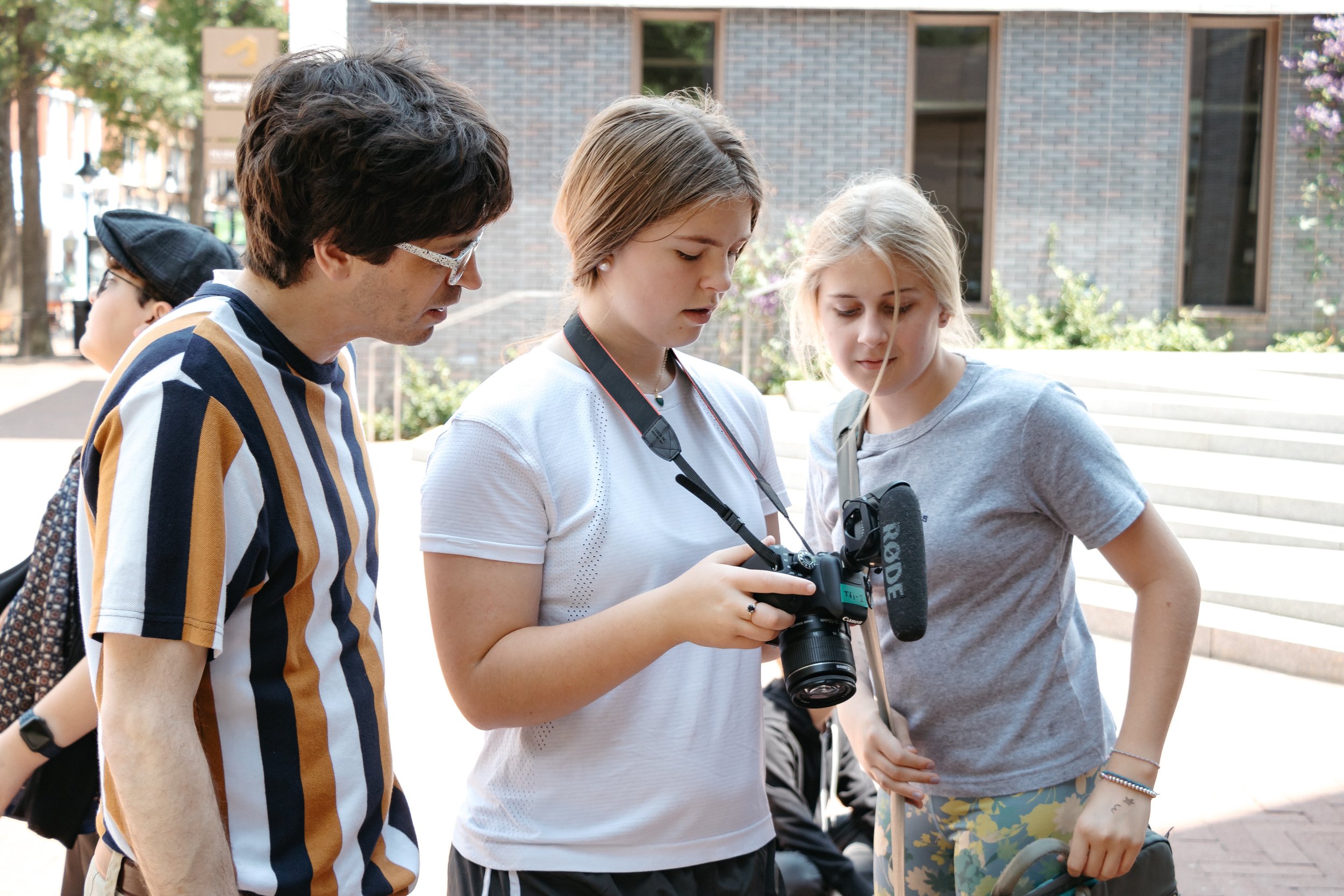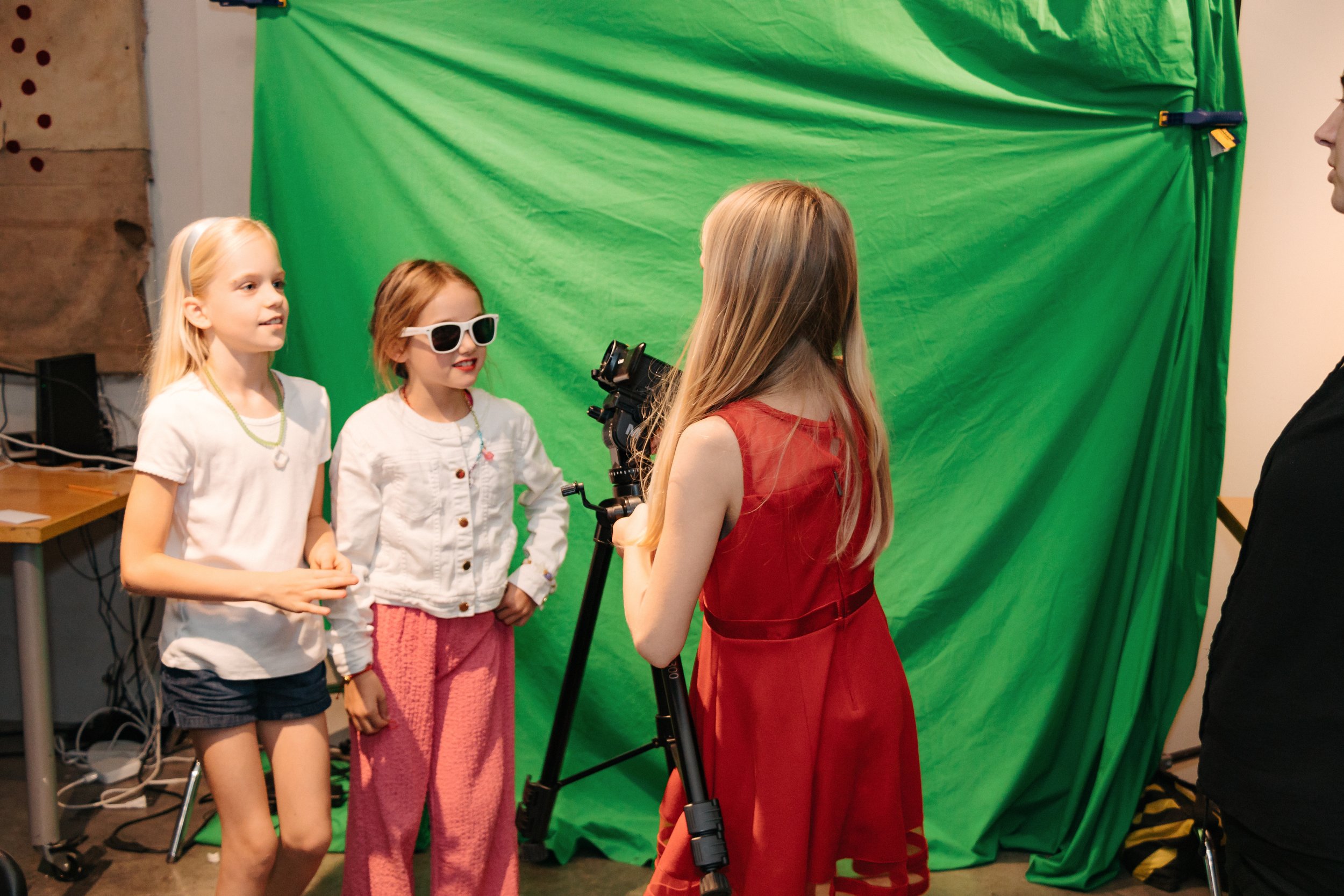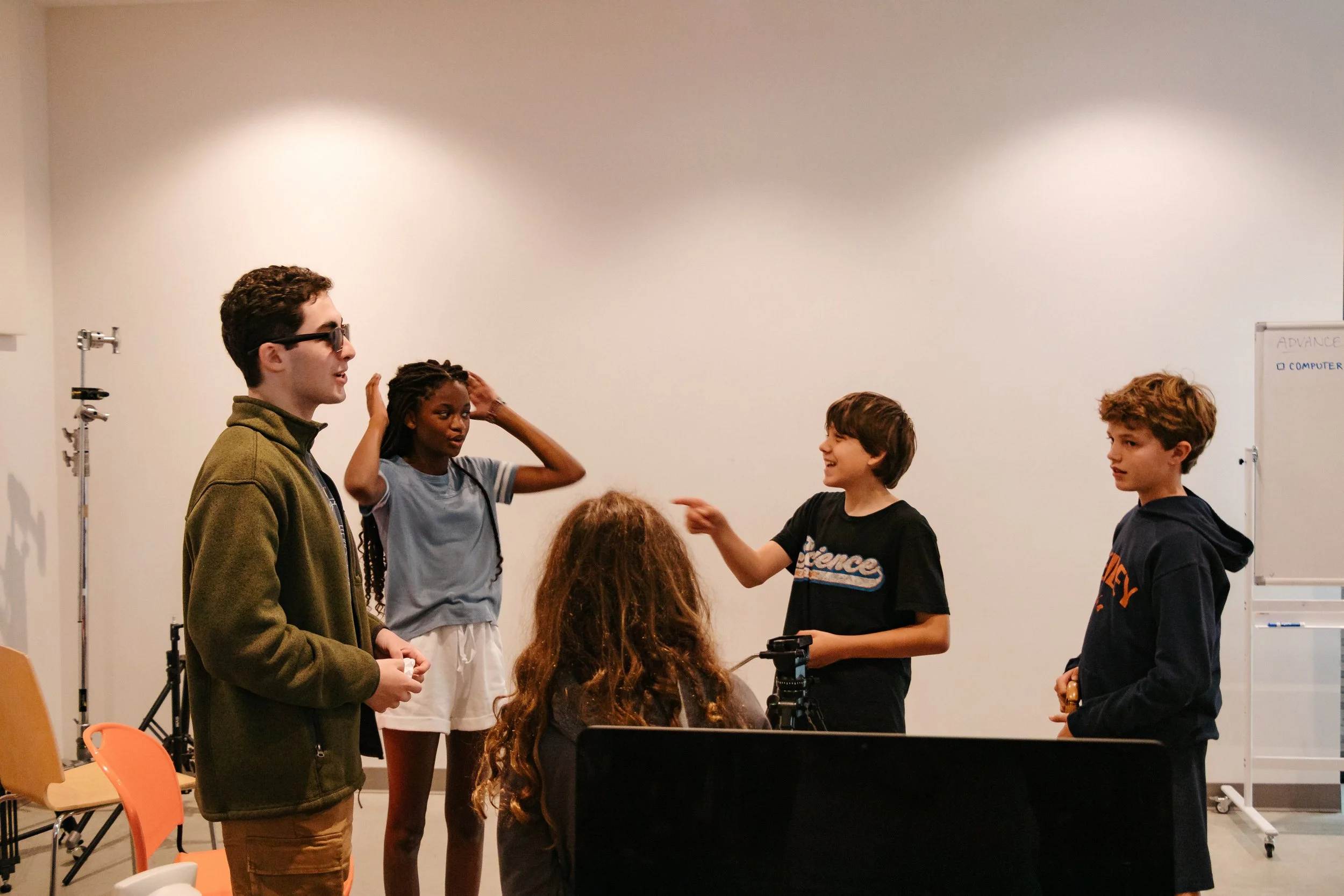
Acting for Camera Workshop
For Middle School and High School Students in 8th - 10th grade
March 5- April 25, Tuesday and Thursday from
Join us for a spooktacular event!
Come to Vinegar Hill Theatre dressed in your best Halloween costume; spooky or sparkly, ghoulish or glamorous, all costumes and characters are welcome! When students arrive, expert makeup artist Lindsey Paulette will help to complete their looks while Light House Teaching Artists work with students to bring their characters to life in front of the camera. Throughout this workshop, students will learn about the role of a special effects makeup artist on a film set. Makeup will be provided.
Acting for Camera
Details: Tuesdays and Thursdays, March 5 - April 25
Age: Middle and High School Students, 8 - 10th grade
Location: Vinegar Hill Theatre, 220 W Market St
Tuition: $
Please review our School Year FAQ page.
FAY E. CUNNINGHAM’s career has spanned over 46 years, teaching at the elementary, middle, high school, and college levels. Twenty-three of those years were spent in directing and coaching theatre and forensics at Albemarle High School. She also coordinated numerous film festivals with her drama students. Her drama and forensics students won numerous awards annually at the local, regional, state, and national levels. She has been a recipient of various awards, including Teacher of the Year which was awarded by The National Speech and Debate Association. On separate occasions, Fay was chosen as the Forensics Teacher of the Year and later as the Theatre Teacher of the Year by the VAFTDC (Virginia Association for Forensics, Theatre, and Debate Conference). She has also been awarded scholarships to study at Stratford-upon-Avon and at The Globe Theatre.
Payment Options
You may pay with a PayPal account or select "Pay with a Debit or Credit Card." There is a 3.5% processing fee for PayPal and credit card payments.
For check payments, please remit to:
Light House Studio 220 W Market St, Charlottesville, VA 22902.
We encourage you to drop off check payments in order to secure your registration and avoid delays!
To apply for tuition assistance, please complete the form here.
Phase I- Using the Physical Instrument & Creativity
March 5 - Storytelling and Artwork, using music as stimulus; bodies moving through space as a form of art
March 7 - Observing silent movies-What acting techniques were used? Notice what little dialogue [inter titles/captions] is needed in telling the story--be brief with words.
March 12 - Pantomiming daily routines, using detailed/specific movements to create pantomime stories, then perform them.
March 14 - Film the pantomime stories; these will be refilmed and discussed later on in the session for comparison.
March 18-22 - No classes
Phase II- Using the Vocal Instrument and Screenwriting
March 26 - The use of voice in film; begin generating ideas for a 2-4 minute film; writing of a screenplay(scene) with storyboard [format, theme, characters, plot, brief dialogue, etc.]
March 28 - Finish writing scenes and read throughs with feedback
April 1-5 - No classes
April 9 - Continue how to use the voice in their created screenplays; refilm the pantomime scenes and compare- What was different? Acting, staging, effective use of movement, etc.
Phase III- Integration and Production
April 11 - Final edits to the scripted screenplays(scenes) and start filming
April 16 - Finish Filming
April 18 - Editing
April 23 - Finish Editing and previewing
April 25 - Showcase
Behind the scenes in our Workshops












